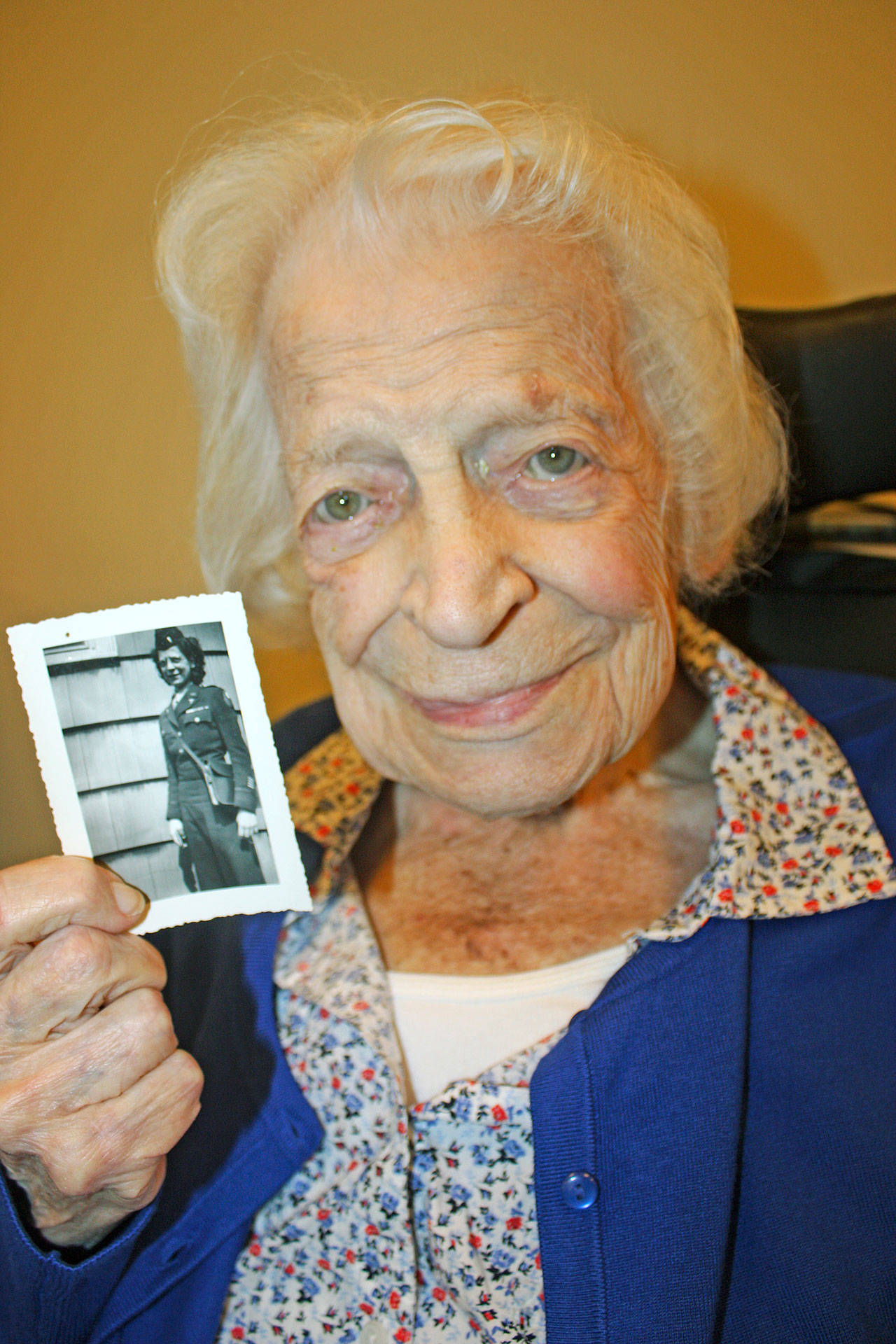Annie McDonald glanced at the pocket-sized, black-and-white photograph in her trembling hand.
And gently smiled.
Who is that 24-year-old U.S. Army nurse in the glossy snapshot?
“Me … long time ago,” McDonald replied. “I am proud of what we did. We had a job to do. We had to go through it.”
“It” meant difficult duty, treating the seriously wounded caught in the throes of a bloody war more than 70 years ago.
Thrust into World War II, the Auburn farm girl and military-trained nurse had to grow up quickly. But McDonald, like many nurses called overseas, responded to the challenge, helping doctors and field medics patch up battle-torn soldiers at blood-splattered hospitals in the European Theater, sometimes about a mile behind the front line.
“What we did no one should have to do,” she said of her unforgettable, 22-month experience. “When you’re young, you do things you wouldn’t do otherwise.
“The GI’s … they never could have lived (without) what we did,” she said. “It was absolutely horrible.”
McDonald often looks back at the most intense experience of her long life, filled with service to her country, and love and commitment to family and friends who will come together Saturday to celebrate her 100th birthday.
“Feel good,” she said, shaking her head at the notion of becoming a centenarian. “I don’t know if I could do it all over again.”
Born in Eastern Washington to German immigrants, McDonald grew up on farms in Puyallup and Auburn. After graduating from Auburn High School in 1935, McDonald finished her registered nurse training in 1938 at St. Joseph’s Hospital in Tacoma.
Soon after the U.S. entered the war, McDonald was one among a group nurses at King County Hospital in Seattle who decided to join the Army.
McDonald, who had four years of clinical experience working at St. Joseph’s and Seattle’s Harborview Hospital, and her fellow nurses trained for 15 grueling months at Camp Carson, Colo. Nurses spent time on the firing range, crawled on their bellies under live machine gun fire and rolled into trenches, never raising their helmeted heads above the ground. There were hikes up Pikes Peak.
Prepared as best it could be, McDonald’s unit arrived from the east coast of England offshore at Utah Beach, France, 39 days after the June 6, 1944 allied invasion of Normandy.
McDonald soon was working in field hospitals closely behind combat troop movements that pushed the front forward from France to Germany.
For military medical personnel, the experience ranged between periods of exhaustion and boredom. The staff had to be flexible, innovative, adaptable and remain calm in unpredictable and dangerous situations.
“We had to move as the front line moved, and we moved a lot because the front line moved a lot,” McDonald said in a 2012 interview with the Auburn Reporter. “Finally, we got to where we could stay in one place for a while, until the front line moved again and we kept moving.”
McDonald focused on her job amid the chaos of tending to the many wounded.
“When a litter was brought in with a guy on it, we didn’t know if we’d find a leg shot off or what was under that blanket,” she said. “Other than that, it was just everyday calamities.”
Once such dying soldier comes frequently to mind.
“The hardest thing I saw was a young, 21-year-old GI,” McDonald recalled. “He had a bullet through his neck, and it severed his spinal cord, and we couldn’t do a thing for him, just couldn’t do anything. That was the hardest thing to take. It was just terrible.”
McDonald spent 26 months in the Army, came home and lived the American dream. She married and continued her nursing profession until retiring in 1981.
Even in retirement, McDonald has stayed active, volunteering at the Auburn Police Department and staying involved in the community.
Her life as a compassionate caregiver, celebrated veteran and giving woman, she said, has been rich and rewarding.
She feels blessed – now, 100 years later.
“I have no secrets,” McDonald said of longevity. “Just do things the right way.”
Auburn Reporter staff writer Robert Whale, Dale Schultz and McDonald’s family and friends contributed to this story.


